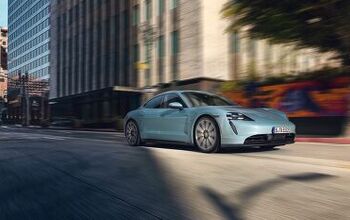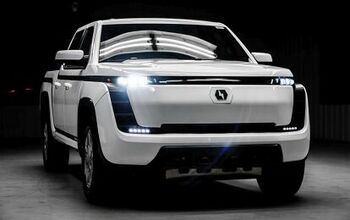2 Views
CAFE Standards For 2025 Released, Totaling 1,994 Pages
by
Derek Kreindler
(IC: employee)
Published: August 29th, 2012
Share
Fuel economy standards for the year 2025 have now been set, as the government released the finalized CAFE regulations, in a massive tome totaling 1,994 pages in PDF form
The full document is available here. I’d be lying if I said I had come anywhere close to completing it…think of the longest novel you’ve ever read and extract all the amazing prose, gripping scenes and moving themes, and that’s basically the CAFE regulation, with another 1,000 pages thrown on top of that. Anyone who has taken a peak is more than welcome to comment. In the mean time, I’ll be in my study…
Derek Kreindler
More by Derek Kreindler
Published August 29th, 2012 3:20 PM


































Comments
Join the conversation
This is just more worthless legislation by worthless politicians that will never go into effect. Does anyone really believe in 13 years, the average new car is going to get over 50 miles per gallon? Of course not, but boy, these politicians look good trying to save the world! Some other President will have to clean up this mess unless everyone wants to drive around in mopeds. Hollywood greenies will scream that big oil kept fuel efficient vehicles off the road as they ride off in their stretched limousine.
Derek, that 1,994 page document was the health care bill; the reference to "54" was the cutoff age for any expensive treatment that the government might have to pay for. Sorry for the confusion, easy mistake.
I'd just like to note that there are things about new cars today that appear to me to help their CAFE ratings, but are not so great after the car has been driven off the lot. my 2012 sedan has a very small battery, crappy electronic power steering, and came with sub par tires. My two older cars have very poor night visibility due to poor quality plastic lenses over the headlights. When did they stop making these out of glass? The plastic is awful. Another thing I will note, is that better fuel economy can often just translate into more miles driven, and an equal or higher amount of FF burnt and relied upon. Also too, do a search on youtube for traffic in ho chi minh city to get an idea of what the future will look like in terms of transportation choices in the absence of electric trains.
What about the 6000 lb elephant in the room? I'm talking about the really "big iron", the F250, etc. These will be much, much less regulated for a couple of reasons. First they are the only pure big3 market left, Toyo does not sell Nimitz-class trucks here. Second they are profitable. Finally you can't apply this level of stupidity to a working vehicle (well you could, this would be to much for now). So many urban-cowboys who bought 5000 lb F150's are going to buy good ole 65000 lb F350's. You'll see many more giant trucks on road simply because they are going to be much less regulated. You'll also see many more very old trucks on the road. Who wants a $50,000 aluminum, complex F150? In recent WSJ they talked about Ford plans to make new F150 with much aluminum, they mentioned the F250, 350 will still be steel. Hmmm . . . and much cheaper . . . and better real-world vehicles. The car driving public? We'll be forced into ever more expensive, smaller, complex, vehicles. But that big iron aint going away, we might see more of it. From safety point of view this is worrisome. I don't believe simple heavier=safer, but in car-car collisions these cars will be at even bigger disadvantage against giant trucks. There was discussion before about how this law accounts for vehicle footprint. This will certainly discourage smaller trucks, by taking cost incentive away: With simpler law automaker would have incentive to substitute a simpler smaller vehicle (ranger) for a larger more complex vehicle (new F150 will have lots of Aluminum). Under this law you have to apply lots of money and complexity to *any* size vehicle, no more small, simple cars. You'll have choice between small, expensive, complex cars and really-small, expensive, complex cars. From economic standpoint this law is crazy. What is economic advantage of going from 40 to 50 mpg car?!